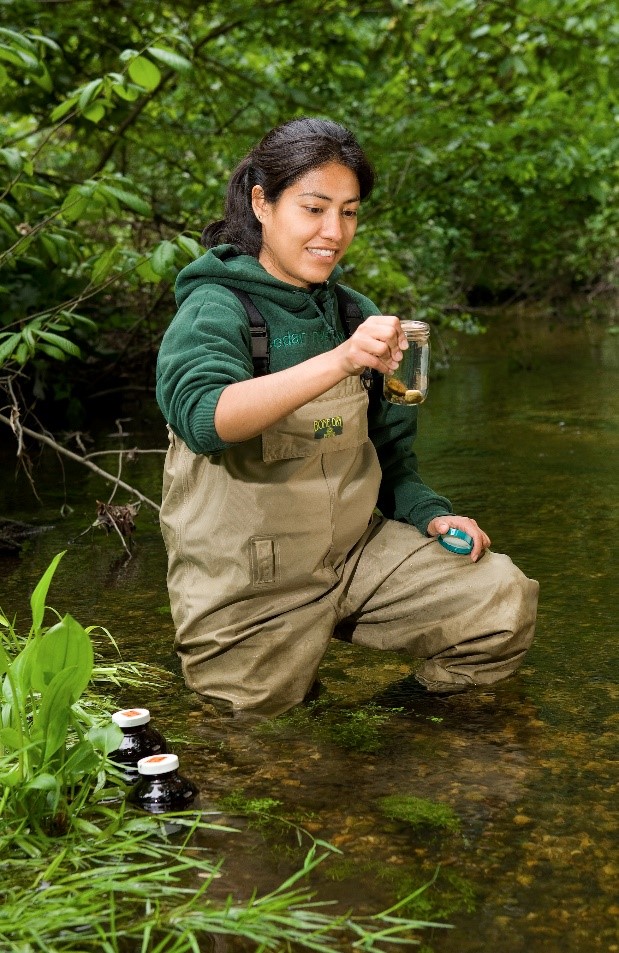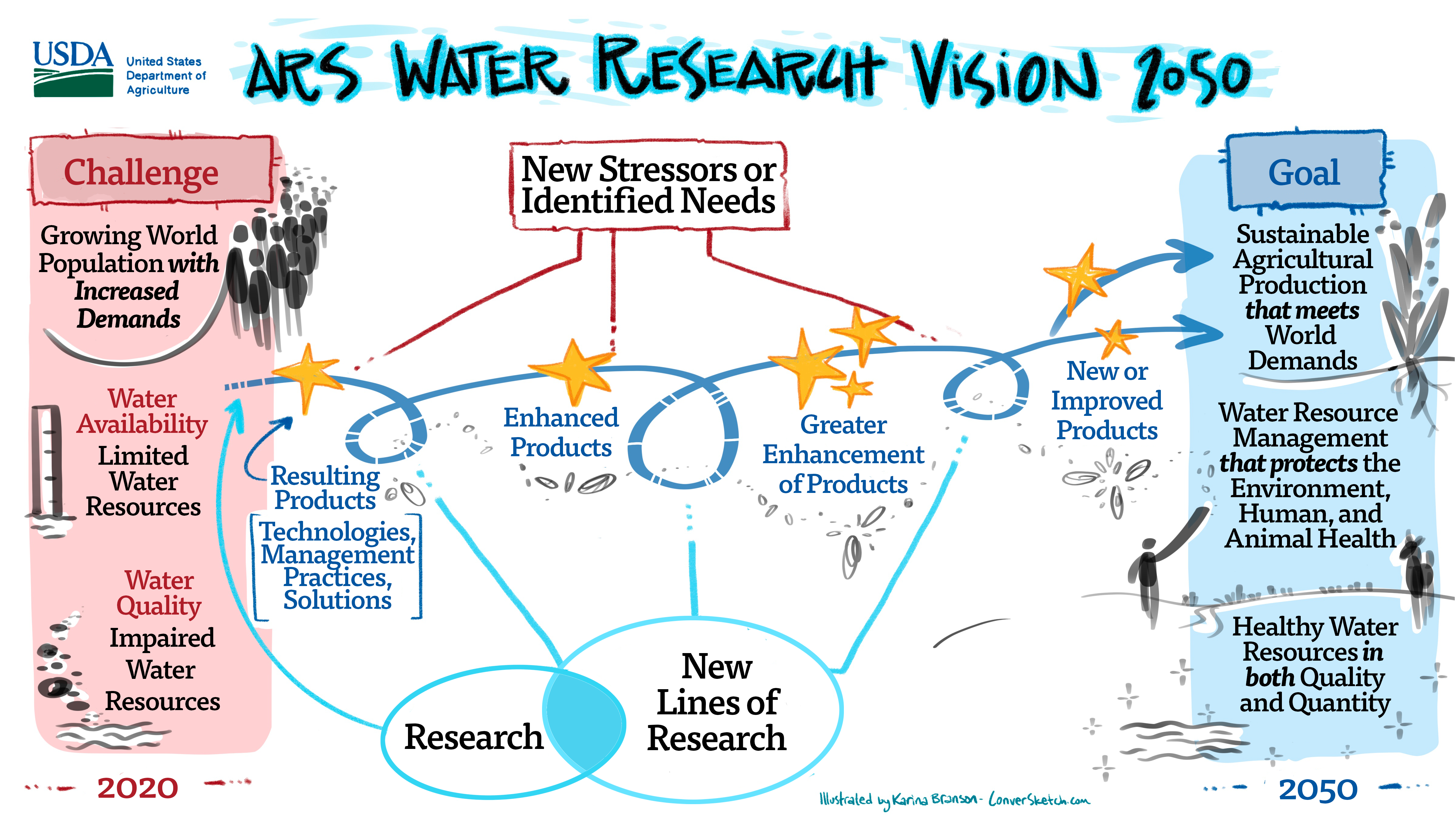One of the greatest challenges facing agriculture is stewardship of our Nation’s water resources – reliably provisioning and maintaining sufficient quantity and quality of water to meet the Nation’s many needs. Growing populations, climate change, resource competition, and pressures on the Nation’s ecosystems simultaneously increase the need for, and threaten availability of, water used by agriculture.Agricultural Research. The Agricultural Research Service (ARS) is the United States Department of Agriculture’s (USDA) chief scientific in-house research agency tasked with finding solutions to agricultural challenges affecting all Americans. The work of USDA-ARS is critical for maintaining and improving quality of life, positively impacting individuals, communities, our Nation, and the world. ARS supports a vision of agriculture as a primary steward of the Nation’s water resources, delivering clean and abundant water to society over the long-term (Fig 1). We develop practices and technologies that are environmentally sound and sustainable to ensure water quality and quantity are maintained while providing abundant food, fiber, fuel, and forage.ARS research priorities are pursued through a diverse portfolio of research projects with 2000 scientists and post-doctoral fellows at over 90 locations globally that rely upon a variety of networks bringing together many partners. ARS research develops solutions to a full range of water challenges facing agriculture, from models that assess and forecast the consequences of climate and management changes on water resources and ecosystem health, to innovative technologies that provide options to the Nation’s farms and ranches, to strategies that balance the services expected of our agroecosystems.To accomplish this, ARS scientists coordinate and collaborate across disciplines, regions, and other scientific organizations to ensure that research outcomes are comprehensive and address not only the symptoms, but also the root causes of, the challenges facing agriculture. These expanded efforts will integrate biophysical and socioeconomic factors affecting sustainable water use to inform policymakers.Hydrologic Extremes and Water Supply. Changing climatic conditions are causing an increase in drought and flooding events that affect the hydrologic cycle. However, these changes differ by region, and uncertainty remains about climate projections of extreme events at the local scale. ARS continues to carry out nationally networked research with local, national, and international collaborators to understand the fundamental processes of hydrologic extremes, to mitigate the risks and buffer their impact on agricultural and non-agricultural systems, and to share information and data.This fundamental information underpins models that extrapolate the outcomes of management change, as well as decision support systems that integrate weather forecasts with predictions of water availability and ecosystem vulnerability, sustaining water resources on and off farms. Recognizing that any single technology presents trade-offs, ARS innovates a suite of new technologies supporting irrigation, watershed, and aquifer management and conducts systems-level research. This ensures agriculture can more efficiently use or reuse available sources of water, while delivering clean water to downstream end users. | | Water Quality. Agriculture contributes to water quality concerns in major watersheds across the country from the San Francisco Bay, to the Mississippi River Basin, to the Great Lakes, to the Chesapeake Bay, to the Everglades. However, the interaction of rural and urban communities and the diversity and complexity of the Nation’s landscapes affect water quality. Interdisciplinary approaches are required to develop solutions for agriculture’s water quality concerns. ARS’s research improves the understanding of potential contaminant sources and their fate. ARS develops water quality management innovations to protect water resources that are cost-effective and can contain, trap, and/or treat possible contaminants. Decision support tools will help communities envision, co-design, and implement water quality mitigation strategies.Societal and Economic Impacts of Water Supply and Quality. The transdisciplinary research of ARS extends beyond the biophysical sciences and engineering and improves the stewardship of the Nation’s water resources. However, these science-proven methodologies must be adopted and used to realize the positive impacts. By engaging with social science disciplines, ARS is ensuring that its solutions are adopted and used. Broad social science research includes a variety of disciplines, such as geography, rural sociology, ethnography, participatory methods, and more. Incorporating these approaches enables ARS to supply stakeholders and policymakers with systems-based tools for complex water decisions that are not only environmentally sound but are also socially acceptable and economically viable.  |



